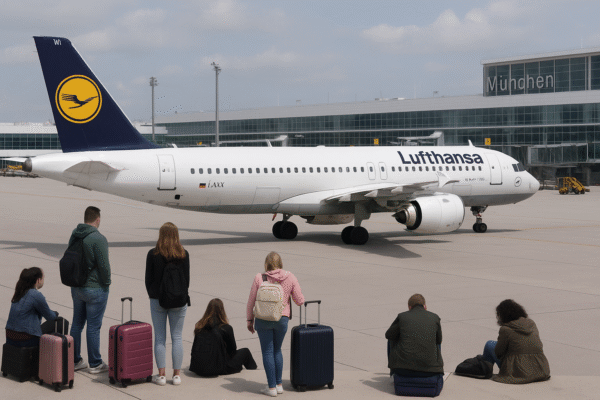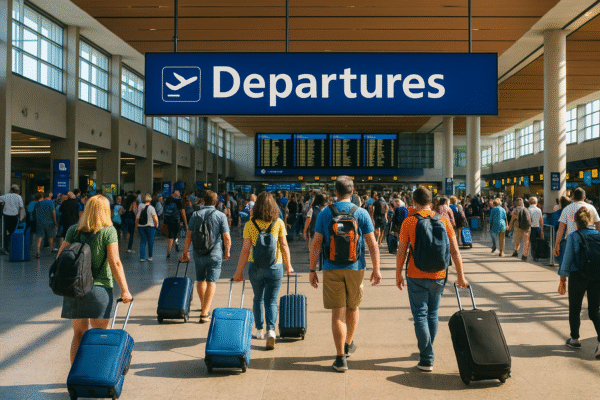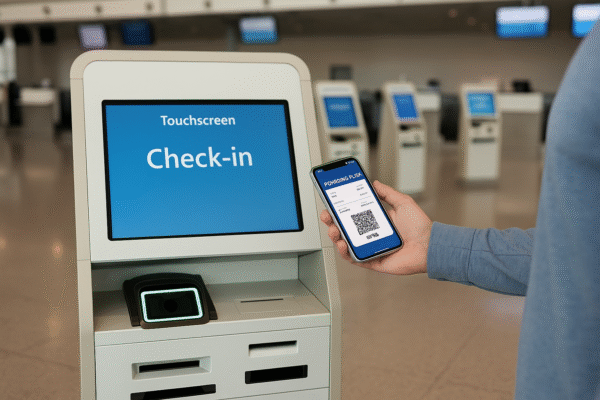Vietnam is preparing to revolutionize the passenger experience at its airports with the introduction of mandatory electronic IDs and self-service biometric kiosks. Beginning December 1, 2025, the new regulation will require most travelers to use digital methods for check-in, security checks, and boarding procedures. This initiative represents a major milestone in Vietnam’s digital transformation, positioning the country as a regional leader in modern air travel.
Passengers without checked baggage will complete all formalities through the VNeID mobile application or at self-service kiosks equipped with biometric authentication systems. Only travelers with special requirements or checked luggage will continue to process their documents at traditional airline counters.
This transformation is not just about efficiency—it is a strategic step toward enhancing security, streamlining operations, and aligning Vietnam with international standards in smart travel infrastructure.
Directive No. 24: A Government-Led Digital Push
The foundation for this change was laid under Directive No. 24, signed by the Prime Minister earlier this year. The directive emphasizes the adoption of biometric technology and digital ID systems across the transport sector. By requiring air passengers to embrace these tools, the government aims to minimize manual processing, reduce waiting times, and ensure greater accuracy in passenger identification.
Between September 15 and November 30, an interim trial phase will allow travelers to register biometric data at counters or through the app. This period is designed to help both airlines and passengers adapt to the upcoming mandatory procedures.
Nationwide Infrastructure Upgrades
To support the policy, the Ministry of Public Security has been working with airports and local authorities to roll out biometric-enabled gates and kiosks nationwide. These systems will be fully connected to the national digital ID platform, allowing seamless integration and real-time verification of passenger information.
The upgrades are scheduled to be complete by October 30, 2025, ensuring all major airports are ready before the December launch. Investments overseen by the Ministry of Finance include state-of-the-art biometric scanners, digital kiosks, and IT systems to manage passenger flows.
Beyond airports, the government also envisions the use of biometric systems in metro stations and parking facilities in Hanoi and Ho Chi Minh City. This reflects a broader strategy to build a digital transport ecosystem across the country.
Benefits for Passengers and Airlines
The move toward digital IDs and biometrics promises several advantages:
- Faster processing: Automated systems are expected to significantly cut down waiting times at check-in counters and security checkpoints.
- Enhanced security: Biometric authentication reduces the risk of identity fraud, ensuring safer travel for all passengers.
- Integrated travel experience: With the VNeID app, passengers can access a unified platform for booking, identification, and boarding, simplifying the entire journey.
Airlines and airports are also preparing to roll out incentives such as discounts or exclusive services to encourage early adoption. Frequent travelers who register their biometric data ahead of time will benefit from smoother journeys once the system becomes fully operational.
Aligning with Global Trends
Vietnam’s decision reflects the global aviation industry’s shift toward digital transformation. Countries across Asia, Europe, and North America are adopting biometric and digital ID systems to increase operational efficiency. By implementing its own system, Vietnam is ensuring its airports remain competitive and attractive to international travelers.
The introduction of biometric kiosks is also expected to strengthen Vietnam’s position as a regional tourism hub, offering visitors a modern and hassle-free experience upon arrival and departure.
Challenges Ahead
Despite the optimism, the transition is not without challenges. Rolling out nationwide biometric infrastructure requires significant investment, technical expertise, and coordination between multiple government bodies and the private sector. There may also be concerns among passengers regarding data privacy and the security of biometric information.
To address this, the government has emphasized strict data protection policies and close monitoring of all systems to ensure compliance with national and international standards.
A Future-Oriented Vision
This initiative forms part of Vietnam’s broader digital government strategy, which aims to modernize not just transportation but also healthcare, finance, and other essential services. By connecting biometric identification to a unified digital platform, Vietnam is laying the groundwork for a smarter, more connected society.
The long-term vision is to create a seamless ecosystem where citizens and visitors alike can use a single digital ID for multiple services, reducing bureaucracy and improving convenience.
Preparing for December
With the December deadline approaching, passengers are advised to download the VNeID app, register their biometric data, and familiarize themselves with the new process. Travelers who prepare in advance will enjoy a smoother transition and avoid potential delays once the policy becomes mandatory.
The government and airlines are committed to guiding passengers through this shift, with awareness campaigns and staff support to ensure confidence in the new system.
Conclusion
The mandatory adoption of electronic IDs and biometric kiosks from December 1, 2025, will mark the beginning of a new era in Vietnam’s air travel. The initiative reflects the country’s ambition to modernize infrastructure, enhance security, and provide passengers with a seamless and efficient travel experience.
By embracing biometric identification and digital technology, Vietnam is not only strengthening its aviation sector but also setting the stage for future innovations in public services. The journey ahead represents a bold step into a digitally connected future—one that promises faster, safer, and more convenient travel for millions of passengers.
For more travel news like this, keep reading Global Travel Wire















